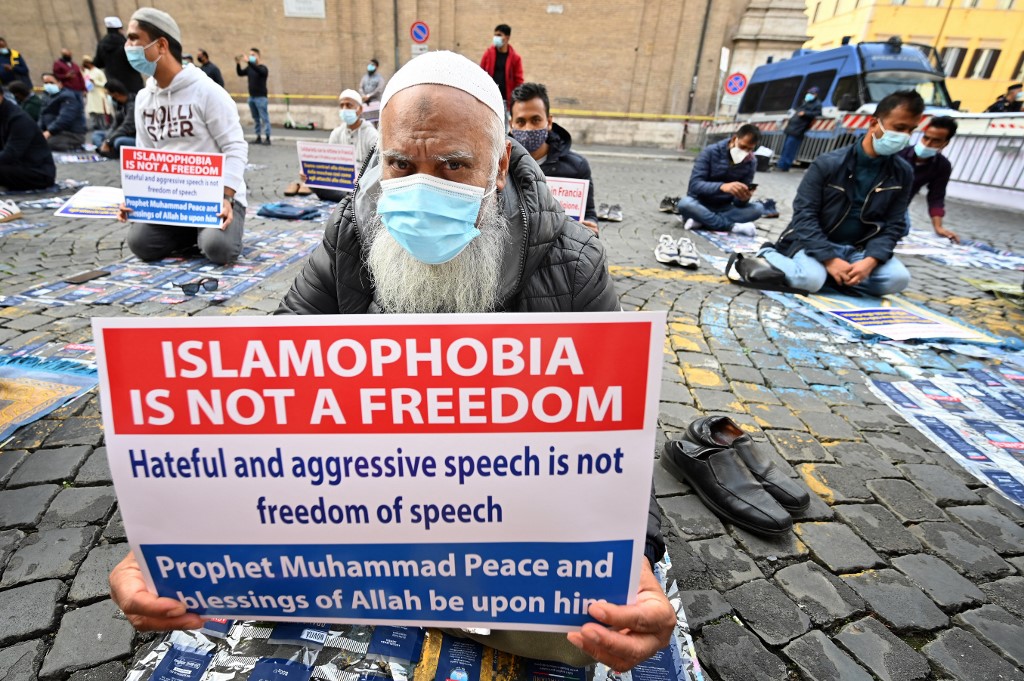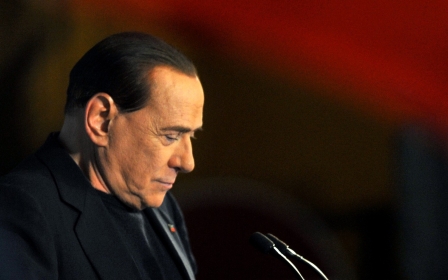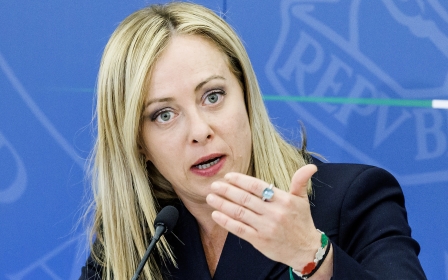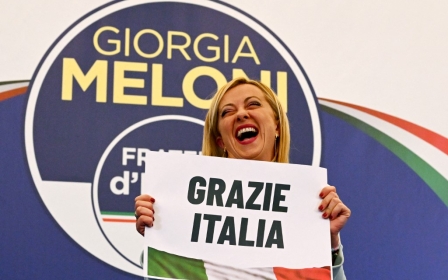Italy: Meloni's Islamophobic policies are pushing Muslims to the margins
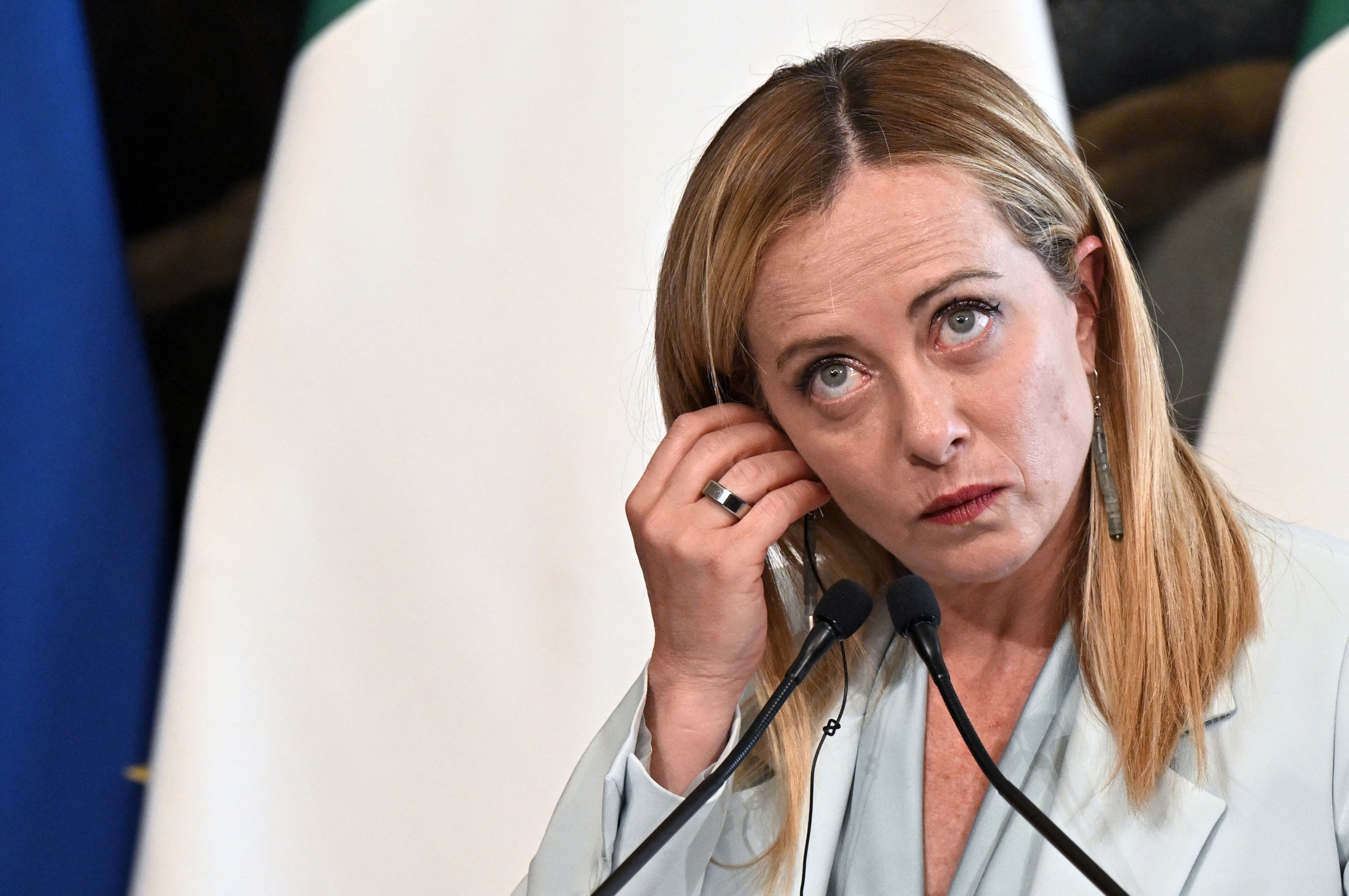
Since taking office in October following the general elections, Italian Prime Minister and leading co-founder of the neo-fascist Fratelli d'Italia (Brothers of Italy), Giorgia Meloni, has made more than a few bad headlines.
She had worried many political elites in Europe with her far-right coalition partner, the League.
But contrary to the fears, she did not stand against the European Union or break with Nato unity against the Russian invasion of Ukraine, two areas that had made her European counterparts especially anxious. French far-right leader Marine Le Pen even slammed Meloni for making migration "concessions" to the EU.
Apart from pushing anti-LGBTQI policies, Meloni has supported the conspiracy theory about an alleged Islamisation of Europe.
In September 2019, Meloni wrote a foreword to the "First Report on Europe's Islamisation", which was presented by the right-wing think tank, Farefuturo Foundation, where she wrote: "Because we fear the 'prophecy' of [Michel] Houellebecq, if Europe, and Italy which concerns us closely, do not decide to have policies and tools to preserve itself, may inevitably turn into reality."
New MEE newsletter: Jerusalem Dispatch
Sign up to get the latest insights and analysis on Israel-Palestine, alongside Turkey Unpacked and other MEE newsletters
Legislating bigotry
Now the first steps have been taken to fight this alleged Islamisation.
Italy neither supports the construction of Muslims' religious buildings nor does it even recognise Islam legally
As researcher Ada Mullol Marin mentioned in her report on Islamophobia in Italy in 2022: "Members of the [Brothers of Italy] FdI and Lega made declarations against the existence and construction of new mosques in the country, arguing that they trigger social conflicts."
Simultaneous media coverage warning of the construction of new mosques as signs of the creation of an "Islamic Ghetto" - headlined in the Berlusconi family-owned newspaper Il Giornale - did the rest of the job of fearmongering to legitimise discriminatory policies.
And this discourse, ahead of the national elections, seems to finally be bearing some fruit.
As local media reported, Meloni's FdI party, which is leading the current coalition government in Italy, proposed a bill aimed at prohibiting the use of garages and industrial warehouses as mosques. FdI’s leader in the Italian Chamber of Deputies, Tommaso Foti, who spearheaded this bill, claimed that it would stop the Islamisation of Italy.
The bill is currently being debated in the parliament's environmental committee. And similar to other states like Carinthia and Vorarlberg in Austria, the law aims to make amendments to urban planning regulation. This way, unlike in Switzerland where an explicit minaret ban in the constitution clearly violates human rights, the Italian government wants to circumvent potential critique regarding the violation of religious freedom.
Still, several similar attempts have failed on a regional level because the regulation was deemed unconstitutional. But this time, the governing far-right, under the leadership of the Brothers of Italy, want to make use of their dominance on a national level.
Unfair treatment
On the other side, the government faces opposition from various parties including the Greens, the Liberals (Action), and a party representing linguistic minorities. They claim that the new bill will curb Muslims' religious freedom.
Currently, Muslims, who make up around 4.9 percent of the total population (2.7 million people), primarily represent the working poor and descendants of immigrants. Their material wealth is restricted. Hence, many of the prayer spaces are in fact not beautiful, glittery, and shining mosques, but located in garages and industrial environments.
Italy neither supports the construction of Muslim religious buildings nor does it even recognise Islam legally.
While today's Italy recognises the Catholic Church as an independent and sovereign authority and has signed contracts with a total of 13 - much smaller - religious communities, including Hindus and Jews, Muslims are lacking similar legal recognition that would allow them to institutionalise their religious infrastructure.
But such a contract also bears risks, as it might put Muslims under more pressure, surveillance, and regulation by the Italian state, similar to what can be observed in Austria.
The policies of Meloni's party are pushing Muslims further to the margin, threatening collective worship, one of the most fundamental pillars of Islam.
With a neo-fascist party in power, another step is being taken to dismantle religious freedom and make Italy a country that discriminates against Muslims.
The views expressed in this article belong to the author and do not necessarily reflect the editorial policy of Middle East Eye.
Middle East Eye delivers independent and unrivalled coverage and analysis of the Middle East, North Africa and beyond. To learn more about republishing this content and the associated fees, please fill out this form. More about MEE can be found here.



